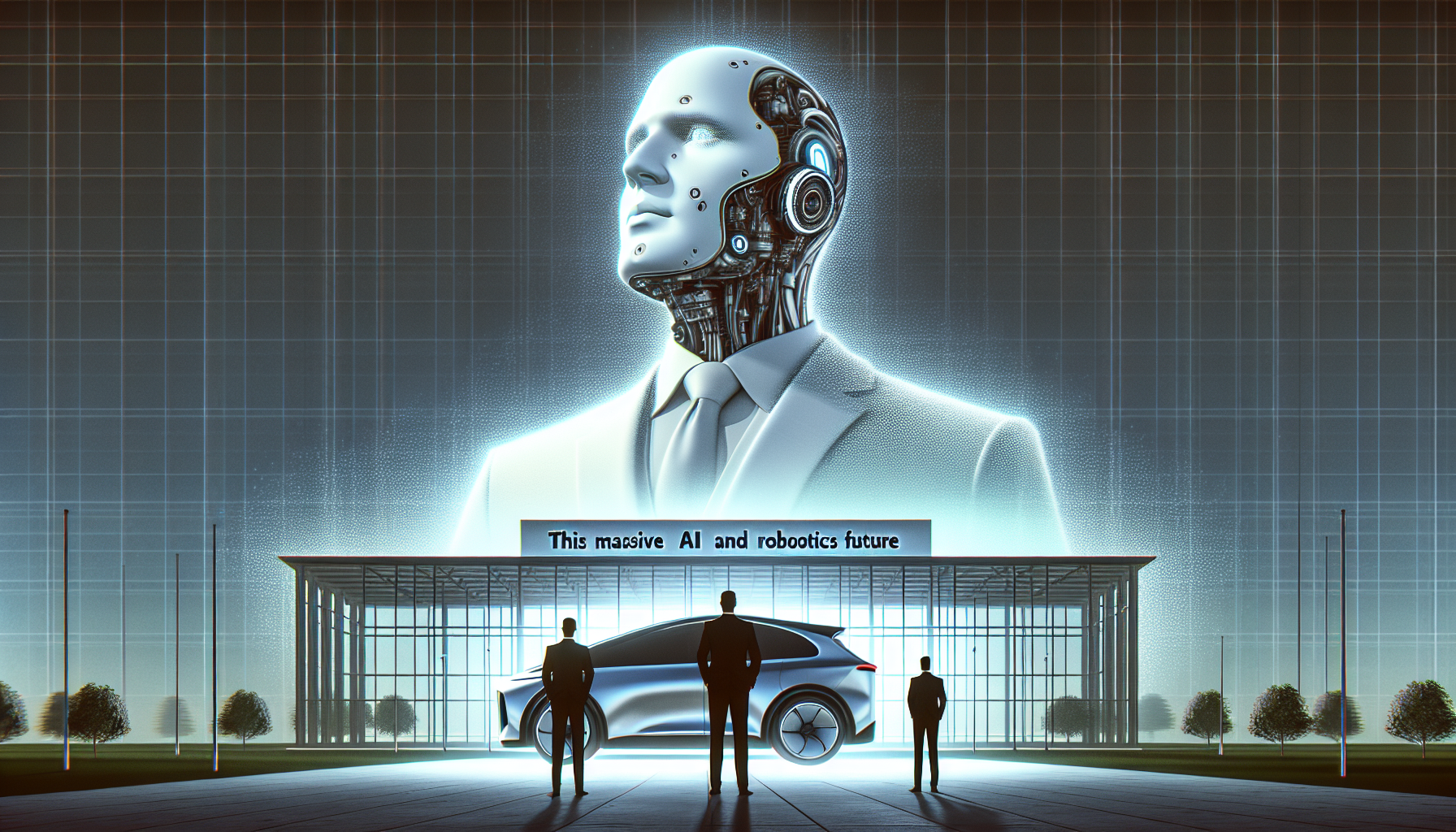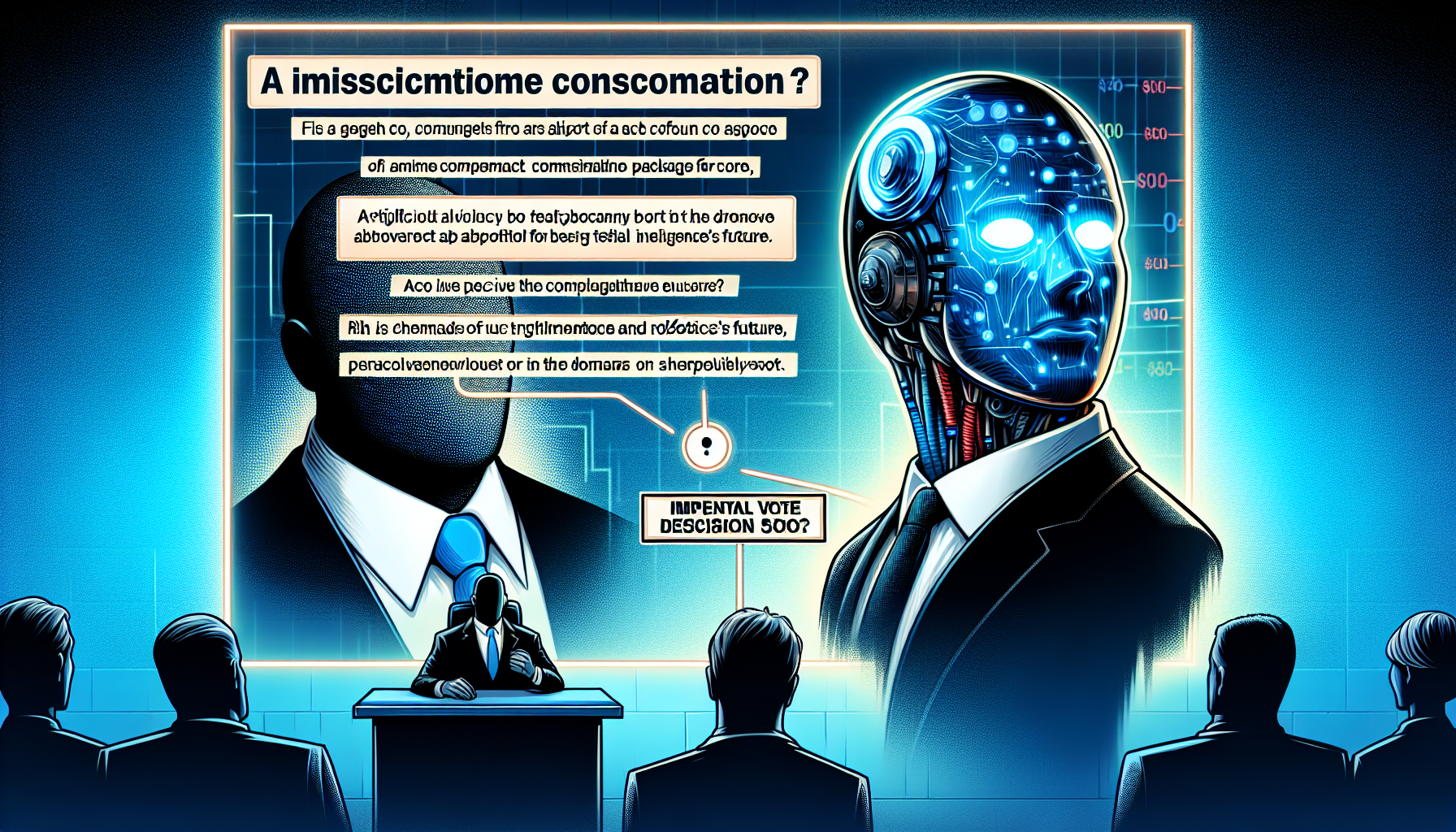The Battle for Tesla's Soul: Musk's $1 Trillion Gamble and the Future of AI
The stage is set for one of the most consequential corporate showdowns of the decade. As Tesla's annual meeting on November 6th approaches, a high-stakes drama is unfolding, pitting the company's visionary ambitions against the foundational principles of corporate governance. At the heart of the conflict is a monumental $1 trillion compensation package for CEO Elon Musk, a proposal that Board Chair Robyn Denholm warns is essential to keeping the mercurial leader at the helm. The message from the boardroom is stark and simple: approve the package or risk losing Musk, and with him, Tesla's future.
More Than a Paycheck: A Vision for Tesla's Next Evolution
This is not a typical executive compensation debate. According to Denholm's recent letter to shareholders, the package is intrinsically linked to Tesla's strategic pivot from a pure-play electric vehicle (EV) manufacturer to a diversified technology and artificial intelligence (AI) powerhouse. The board argues that Musk is the irreplaceable architect of this transformation, which hinges on two revolutionary technologies: Full Self-Driving (FSD) software and the Optimus humanoid robot.

"Without Elon, Tesla could lose significant value, as our company may no longer be valued for what we aim to become," Denholm wrote. This statement underscores a fundamental belief that Tesla's market valuation is not solely based on its current car sales but on its potential to dominate future tech markets. The proposed pay package is framed not as a reward for past performance, but as an incentive to secure the leadership necessary to realize this audacious future.
The Mechanics of a Mega-Deal
So, what does a $1 trillion pay package actually look like? The plan, initially outlined by the board in September, is structured around ambitious performance milestones. It consists of 12 distinct tranches of stock options that would be granted to Musk only if Tesla hits specific, undisclosed market capitalization and operational targets. This performance-based structure is designed to align Musk's financial incentives directly with long-term shareholder value creation.
If the full award is granted, Musk would receive over 423 million additional Tesla shares. This would significantly increase his ownership stake from the current 13% to approximately 25%, granting him a level of voting power he has publicly deemed necessary for the company's future direction, particularly concerning its AI development.
The AI Influence Argument
This brings us to a critical and somewhat unprecedented aspect of the proposal: the demand for increased voting control. Musk has been vocal about his desire for greater influence over Tesla, explicitly linking it to the development of advanced AI and robotics. On a recent earnings call, he posed a rhetorical question that sent ripples through the industry: "If we build this robot army, do I have at least a strong influence over that robot army? I don't feel comfortable building that robot army if I don't have at least a strong influence."

Board Chair Denholm has echoed this sentiment, telling CNBC, "It's less about compensation and more about the voting influence." This framing positions the pay package as a necessary safeguard. The board argues that to navigate the complex ethical and strategic landscape of artificial intelligence, Tesla requires the steady, visionary hand of its founder to prevent "bad things" from happening. This argument attempts to transform a governance concern into a existential imperative for the safe development of AI.
A Chorus of Dissent: The Opposition Gains Momentum
Despite the board's forceful advocacy, the proposal faces significant and organized resistance. The opposition is not monolithic, arising from several groups with varying concerns:
- Proxy Advisors: Influential firms like Institutional Shareholder Services (ISS) have recommended voting against the package, often citing its sheer size and potential dilution for other shareholders.
- Corporate Governance Watchdogs: These groups argue that the package sets a dangerous precedent and questions the board's independence, suggesting it is overly deferential to Musk.
- Brand Reputation Concerns: A coalition of unions and other organizations, under the "Take Back Tesla" banner, has launched a public campaign against the package. They point to Musk's embrace of right-wing political movements and his amplification of conspiracy theories on his social media platform, X (formerly Twitter), as actions that have damaged the Tesla brand and introduce unnecessary reputational risk.
This trifecta of opposition highlights the tension between Tesla's identity as a disruptive tech innovator and its responsibilities as a publicly traded company accountable to a diverse base of shareholders.
The Stakes for Tesla's Market Position
The vote occurs against a backdrop of mixed financial signals for Tesla. The company recently reported third-quarter earnings that missed analyst expectations, breaking a streak of declines with a 12% increase in revenue. The EV market is becoming increasingly competitive, with legacy automakers and new entrants alike chipping away at Tesla's first-mover advantage.
In this context, the pay package vote is a referendum on confidence. A "yes" vote signals that shareholders believe in Musk's long-term vision over near-term financial metrics and competitive pressures. They are betting that his leadership in FSD and Optimus will unlock trillions in value that the current automotive business alone cannot. A "no" vote, however, could be interpreted as a loss of confidence in Musk's strategic direction or a demand for a more conventional corporate structure, potentially triggering volatility in Tesla's stock price.
Conclusion: Market Implications for the Coming Weeks
The outcome of the November 5th shareholder vote will send powerful shockwaves through the market, regardless of the result. In the immediate weeks following the decision, we can expect significant volatility in Tesla's stock (TSLA). A rejection of the pay package will likely trigger a sell-off as investors price in the heightened risk of Musk's departure or reduced involvement. The board's explicit warning that Musk could leave will not be taken lightly, and the market would be forced to re-evaluate Tesla's future without its iconic leader.
Conversely, an approval could provide a short-term boost, validating Musk's vision and solidifying his commitment. However, the long-term implications are more complex. Granting a single individual this level of control and compensation concentrates immense risk. It could make Tesla more vulnerable to Musk's personal decision-making and public controversies, potentially alienating a segment of its customer base and attracting further scrutiny from regulators. For the broader tech and automotive sectors, a "yes" vote would reinforce the "founder-knows-best" model of governance, potentially inspiring similar moves at other visionary-led companies. A "no" would serve as a powerful reminder of shareholder authority and the growing importance of ESG (Environmental, Social, and Governance) principles, even for the most innovative of firms. The world will be watching, as the decision made in this boardroom will not only dictate Tesla's trajectory but also shape the evolving relationship between visionary leadership and corporate accountability in the age of AI.

